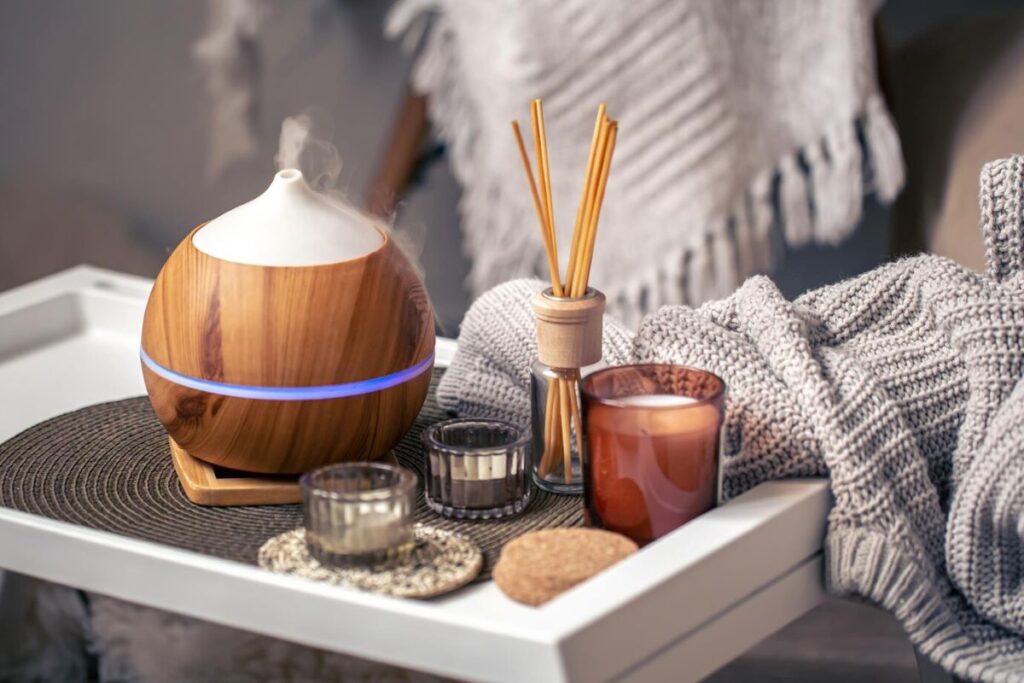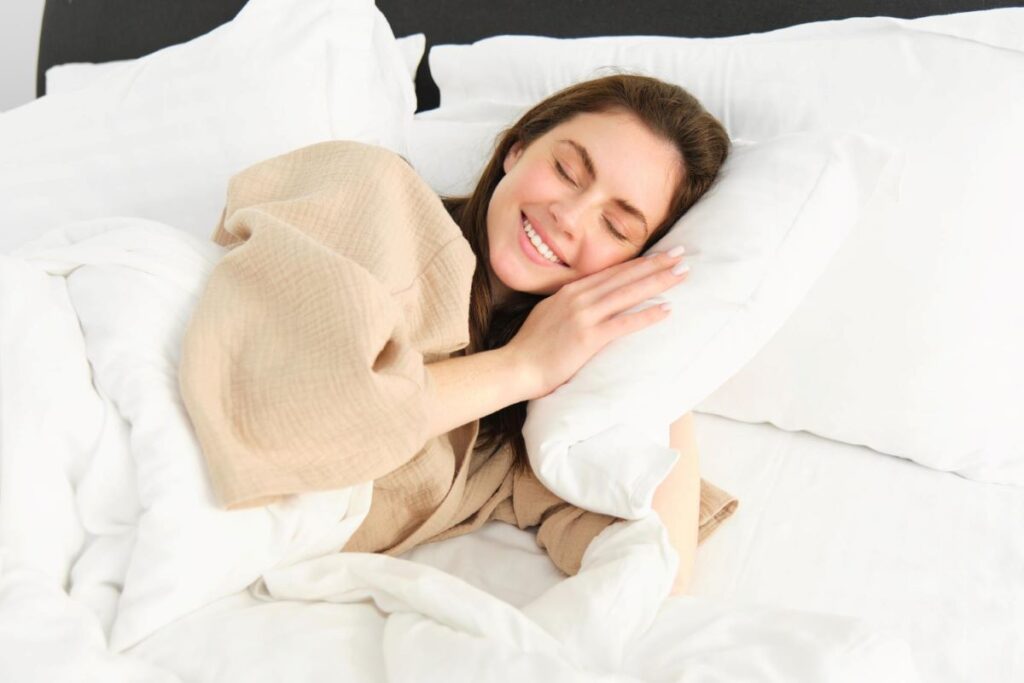The term mental fitness encompasses working on your mental health in big and small ways. This includes therapy, medication, supplements, and breathing exercises. While these activities are helpful, sometimes simple, low-impact remedies can remarkably improve your mood.
Also known as essential oil therapy, aromatherapy is a holistic treatment that uses essential oils to improve your overall mood. Although research on the benefits of aromatherapy on mental health is limited, studies suggest that it can ease anxiety, pain and improve sleep.
By using essential oil extracts from plants, breathing them through your nose or putting them on your skin, you can remarkably improve your mood, energy, and boost your focus.
How Does Aromatherapy Work?
Aromatherapy works with the sense of smell. It activates areas in your nose called smell receptors which sends messages through your nervous system to your brain. The oils reach your brain through the bloodstream through the part of the lungs where blood and oxygen are exchanged.
They impact the hypothalamus, a structure in the brain that acts as the body’s smart control coordinating centre. When you smell an essential oil, the body responds by creating feel-good brain chemicals like serotonin. Serotonin is a hormone often associated with happiness and calmness.
To reap the benefits of aromatherapy, you can put some essential oils in a diffuser, light a scented candle, or rub a scent on your wrist. All these activities can transform your mood with little risk or effect, even if it doesn’t work.
Types of Essential Oils
When choosing essential oils, it is important to consider the oil’s purity and quality. After all, the effects of different oils can vary by individual. What works for one person might not work for the other. If you are considering aromatherapy as part of your mental health and wellness routine, here are a few common scents worth exploring.
Lavender: Soothing and comforting lavender essential oils can reduce headaches. They also help with mood, anxiety, and depression. Lavender is known for its ability to calm the nervous system and lower blood pressure. Many also found lavender scents useful for stress reduction and improved sleep.
Peppermint: Aromatherapy peppermint oil is promoted for treating coughs and colds. It can reduce pain, improve mental function, and reduce stress. Inhaling peppermint oil when you are feeling sluggish can give you a refreshing boost.
Citrus Scents: Citrus oils, including lemons, oranges, and Bergamot, can remarkably uplift your mood and energy. They also have a calming and soothing effect.
How to Include Aromatherapy into Your Wellness Routine?
There are several ways to include aromatherapy in your routine. As a start, you can use an aromatherapy diffuser or simply add a few drops of oil to a bowl of hot water. The gentle aroma will fill the room, creating a relaxing atmosphere.
You can enhance your bath time by incorporating essential oils into your bath routine. Add a few drops of your favourite oil to a bath bomb, bath salts, or carrier oil, and enjoy the soothing and aromatic soak to nourish and indulge your senses.
To improve your sleep, diffuse or drop lavender scent under your nose or pillow. You can also use a lavender pillow spray to get some relaxing vibes to help you sleep better.
With the variety of essential oils on the market, many might question their safety. Although aromatherapy oils are generally safe, some people are allergic to them. That’s why it is important to test them out first. Some essential oils can irritate the eyes, skin, or mucous membranes, causing mild allergic reactions.
If you are new to aromatherapy, you can work with an aromatherapist or doctor to find the best essential oil treatment that fits your needs.
Aaron Levinson | Staff Writer










